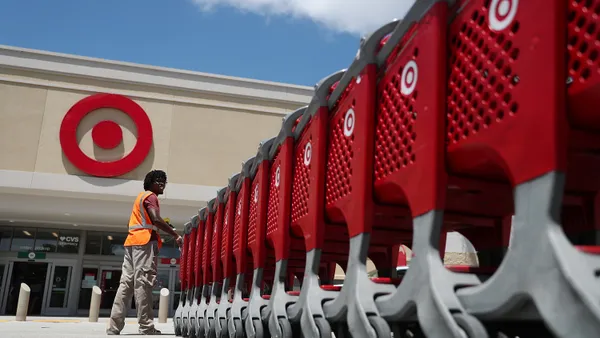Dive Brief:
- Automation isn't the total wipe-out of human employment it's often made out to be, according to research published by Boston University School of Law. In the study of both new hires and tenured workers with at least three years on staff, research results showed that relatively few workers were negatively affected by automation and only about 2% of long-term workers left their jobs the year automation spiked at their company, a number that rises to 8.5% after about five years. Researchers collected government records data from 2000 to 2016, covering about 5 million workers in private, non-financial companies in the Netherlands.
- In an article for Harvard Business Review, the researchers rejected the belief that automation has the same effect on workers as a massive layoff. In the Netherlands, about 3.5 to 7.2% of workers lose their jobs in mass layoffs; only 0.7% of workers leave due to automation. Researchers found, however, that automation's biggest negative impact on workers were lost wages and periods of unemployment. Automation impacted higher paid, higher educated workers more often, but hit low-wage, less educated workers the hardest in terms of pay and job loss.
- In other findings, the likelihood of leaving a job because of automation varied little by age or gender; recently hired older workers were more likely to leave than other groups of workers; and losses were greater in manufacturing, although evident in all industry categories. The researchers do note that the impact of automation "might worsen" in the future.
Dive Insight:
Automation doesn't appear to be replacing workers en masse, as many have predicted and others feared. In fact, technology is causing some employers to hire even more people, according to a new report from ManpowerGroup. The results showed that 87% of employers polled said they planned to maintain or increase their head counts because of automation. A 2017 report from Gartner predicted that artificial intelligence will create 2.3 million jobs and eliminate only 1.8 million.
Of course, certain industries and job titles will experience greater takeovers from automation than others, such as cashiers. But with hundreds of thousands of jobs to fill and a skills gap that continues to be a serious challenge for employers, forward-thinking HR leaders are preparing their organizations for impending changes by learning how to be agile. They're hiring more contingent workers so they can adjust staffing levels according to market fluctuations, and they're investing in training, upskilling and reskilling employees to build a capable workforce and to keep their organizations competitive.












![Salesforce AI's CEO sits onstage across from Cristina Criddle. Screens that say Human[X] hang behind them.](https://imgproxy.divecdn.com/4XVfO8mNsslv7_axsVip9IU74iKpLWgiY3616VXH4ow/g:nowe:0:104/c:1024:578/rs:fill:600:338:1/Z3M6Ly9kaXZlc2l0ZS1zdG9yYWdlL2RpdmVpbWFnZS9HZXR0eUltYWdlcy0yMjA0NjUxNDM0LmpwZw==.webp)